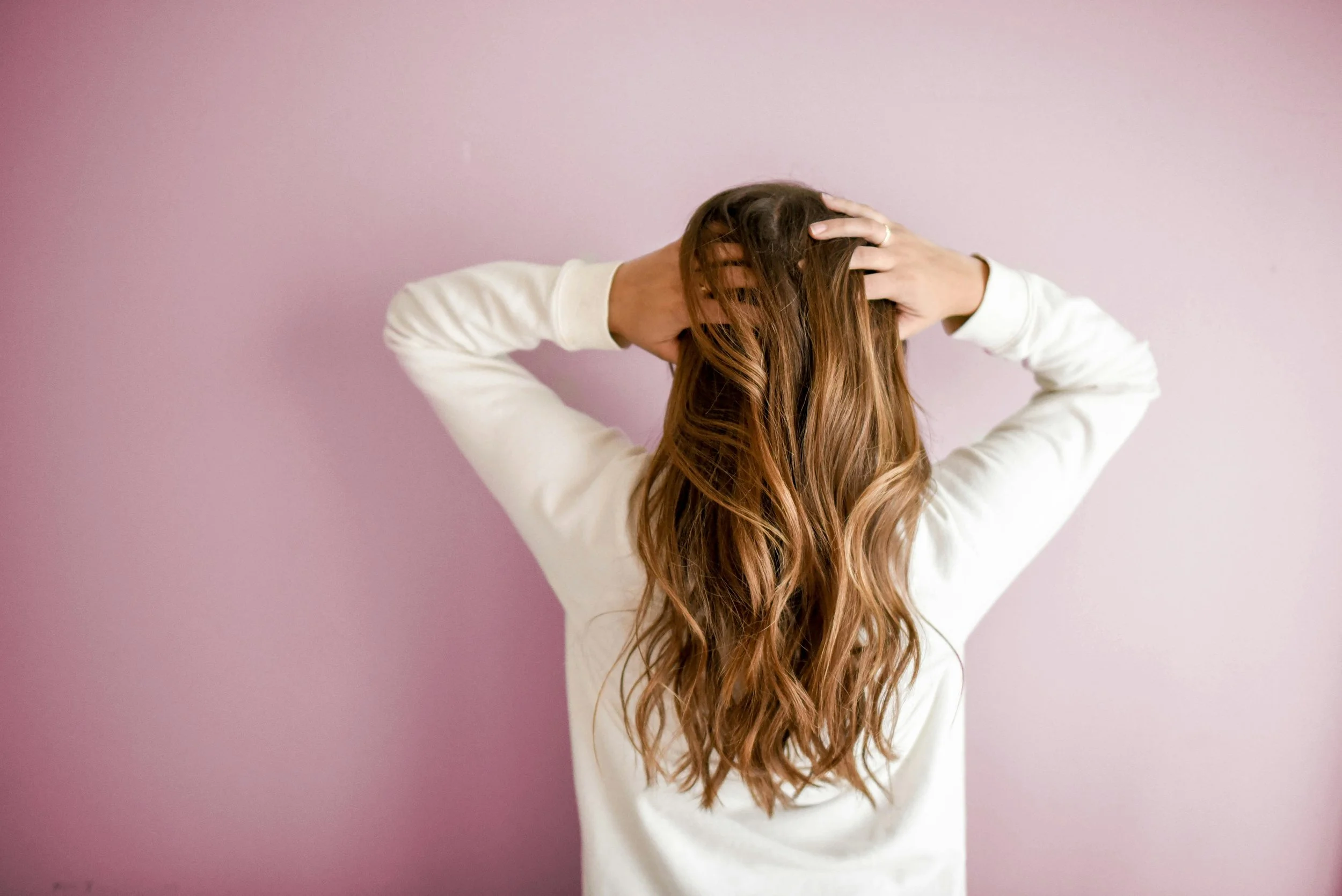The Real Reason You Hair Is Falling Out (and What to Do About It)
Hair shedding a little too much lately? You’re not alone. Hair loss can feel frustrating and confusing, especially when it seems like nothing has changes. But hair is a reflection of what’s happening inside your body - and it’s often one of the first places to signal something is off.
When I look back on times in my life when my hair was falling out excessively - is all starts to make sense! I can clearly connect those moments with how I was eating - and more importantly, how I was treating my body.
We live in a world that never slows down. It’s a go go go from the moment we wake up. In the middle of the chaos, food becomes and afterthought. Instead of seeing it as nourishment - fuel for our bodies - we grab whatever’s quick, eat it on the run, and move on without giving our bodies a chance to even digest.
But just like you wouldn’t put regular gas in your Audi, maybe it’s time to think about the fuel you’re giving to the one vehicle you actually live in - your body.
Here are some key things that might be contributing to your hair loss - and what to start paying attention to.
1. Not eating enough (or skipping meals entirely)
Hair growth isn’t essential for survival—so when your body thinks it’s in a crisis (like not getting enough food), it conserves energy by cutting non-essentials first. The result? Hair loss. If you’re constantly under-eating or skipping meals, your body may not have the nutrients or calories it needs to keep growing healthy hair.
2. Protein deficiency
Hair is made mostly of a protein called keratin. If you’re not getting enough protein from your diet, your body can’t prioritize hair production. Think of protein as the building block of every strand—without it, your hair literally has nothing to grow from. Essentially, your body will prioritize vital organs first - so if protein is not being delivered consistently - your hair will be one of the first to suffer.
3. Low iron or B12
Did you know? Iron deficiency Is one of the most common causes of hair thinning in women. Iron helps carry oxygen to your hair follicles, and without enough of it, they’ll weaken and shed faster. Feeling tired all the time and losing hair? This might be why.
4. Chronic stress
Stress can mess with your hormone levels and increase inflammation. Stress floods your body with cortisol, which can disrupt hormone balance and push hair follicles into a “resting” phase—aka no growth. Long-term stress can lead to hair shedding and thinning over time, even months after a stressful event. Again, when your body feels threatened, hair growth goes to the back of the priority list.
5. Inflammation and gut issues
Your gut microbiome plays a huge role in nutrient absorption (read more about gut microbiome here) If your gut is inflamed or lacking healthy bacteria, you might not be absorbing the vitamins and minerals your hair needs. Even if you’re eating all the right things, your gut has to be in good shape to actually use them.
6. Crash diets and extreme cleanses
When your calorie intake drops suddenly, your body goes into conservation mode. Non-essential functions (like hair growth) slow down or stop entirely.
Hair loves consistency—yo-yo dieting isn’t just hard on your energy, but your follicles too.
7. Hormonal imbalances
Conditions like thyroid disorders or PCOS, as well as sudden hormone shifts (like postpartum), can all affect your hair. If the hair loss is persistent, it might be time to dig deeper and check your hormone levels.
What To Do Next
If you’re experiencing hair loss, take a moment to pause and reflect - not panic. Your body is constantly communicating with you, and hair shedding is often a signal that something deeper needs attention. It’s not about finding the perfect shampoo - it’s about giving your body the right tools to thrive.
Here’s how you can start:
Reassess your meals. Are you eating enough protein? Are your meals balances and nourishing?
Check your iron and vitamin levels. If it’s been a while since your last visit to the doctor, it might be time to do a blood test and check your vitamins to determine if you’re lacking anything essential.
Support your gut. It never hurts to add gut friendly foods like fermented veggies, bone broth, or probiotics like kefir to your routine.
Manage stress. Whether it’s your breathwork, movement, or quiet time - your nervous system needs you. Find a way that works best for you, but allow your mind and body to reset. Daily.
Ditch the diet rollercoaster. Your body needs stability. Find a way that works. Consistency is key.
Healing takes time, but your hair will thank you for every small shift you make towards a more nourished, balanced life.
If you’re not sure where to start, I’d love to help. Book a free consultation with me and let’s figure out what your body is trying to tell you - together.


